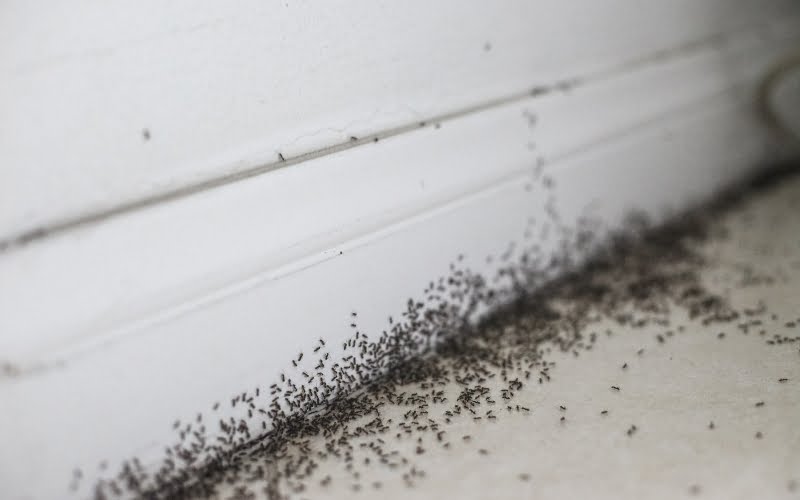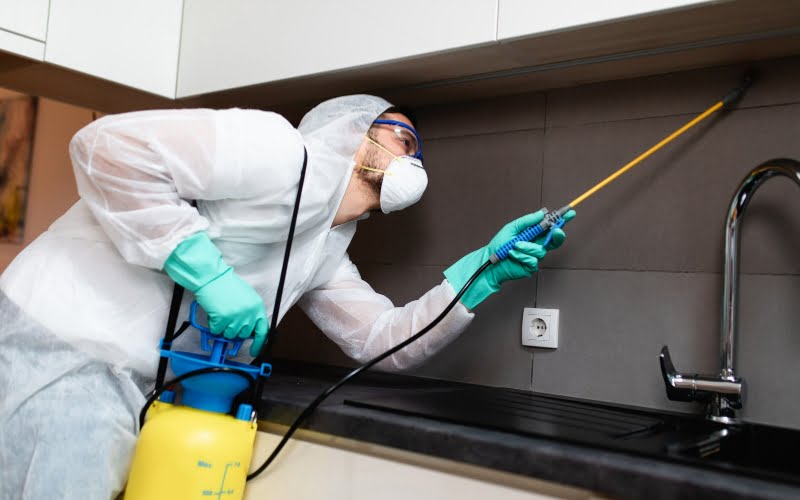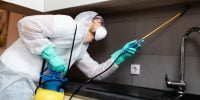Last Updated on March 18, 2024 by Kelvin Nielsen
If you’re a tenant in Delaware, you may be wondering whether your landlord is responsible for pest control. The answer is generally yes. According to iPropertyManagement, landlords are almost always responsible for pest control.
They must pay to exterminate infestations the tenant didn’t cause and treat pest issues that affect more than one residence.

As a tenant, you have the right to a habitable living environment. This means your rental unit should meet specific health and safety standards. According to Delaware Landlord-Tenant Law, landlords must meet certain “habitability” requirements for all rental properties.
Landlords are responsible for providing a property that meets these standards and for fixing issues that violate them.
In summary, landlords in Delaware are generally responsible for pest control and providing a habitable rental unit that meets local safety and health regulations. As a tenant, you have the right to privacy, and landlords cannot enter your rental unit without permission, except in certain circumstances.
If you have concerns about pest control or the habitability of your rental unit, you can report your landlord to the appropriate authorities.
Key Takeaways
- Landlords in Delaware are generally responsible for pest control and providing a habitable rental unit.
- Tenants have the right to privacy, and landlords cannot enter their rental unit without permission.
- If you have concerns about pest control or the habitability of your rental unit, you can report your landlord to the appropriate authorities.
Related Posts:
- Report Your Landlord in Delaware
- How Long Does a Landlord Have to Fix Something in Delaware?
- Can You Withhold Rent in Delaware? A Guide to Tenant Rights
Tenant Rights and Responsibilities
As a tenant in Delaware, you have certain rights and responsibilities when it comes to pest control. Your landlord is responsible for providing a rental unit that is free from pests at the time of move-in.
If pests appear during the tenancy, the landlord is responsible for addressing the issue and providing pest control services. However, you also have certain responsibilities as a tenant to help prevent pest infestations.
When Tenants Can Withhold Rent
If your rental unit is infested with pests and your landlord has not taken any action to address the issue, you may be able to withhold rent until the problem is resolved.
However, you must follow the proper legal procedures and notify your landlord in writing of the issue and give them a reasonable amount of time to address it before withholding rent.
Reporting and Cooperation
It is important to report any pest problems to your landlord as soon as possible. You should also cooperate with your landlord and any pest control professionals they hire to address the issue. Failure to report a pest problem or cooperate with pest control efforts could result in you being held responsible for the cost of pest control services.
Legal Recourse and Eviction Process
If your landlord fails to address a pest problem and you have followed the proper legal procedures, you may be able to take legal action against them. This could include filing a complaint with the Delaware Department of Justice or taking your landlord to court. However, it is important to note that you could also be subject to eviction if you fail to pay rent or violate any other terms of your lease agreement.
Related Posts:
- What Rights Do Tenants Have in Delaware?
- What a Landlord Cannot Do in Delaware? A Comprehensive Guide
Landlord Responsibilities in Delaware
As a landlord in Delaware, you have certain obligations to your tenants. Understanding these responsibilities is important to ensure that you are in compliance with state and local law. Here are some key areas to keep in mind when it comes to pest control and other landlord responsibilities.
Understanding Lease Agreements and Pest Control Clauses
Your lease agreement should clearly outline who is responsible for pest control in the rental unit. In Delaware, landlords are almost always responsible for pest control, including bed bugs, termites, and cockroaches.
If your lease agreement does not include a pest control clause, you may still be responsible for taking care of any infestations that occur during the tenancy.
Health and Safety Obligations
As a landlord, you have an obligation to provide a habitable rental unit for your tenants. This means that the unit must be safe and free from hazards that could cause harm to your tenants. In terms of pest control, this may require you to take action to prevent or eliminate infestations that could pose a health or safety risk to your tenants.
Maintenance and Repairs
Maintaining your rental unit is also an important responsibility as a landlord in Delaware. This includes repairing any damage that could contribute to pest infestations, such as leaks or cracks in the walls or foundation.
Regular inspections can help you identify and address any maintenance issues before they become bigger problems.
Remember that as a landlord in Delaware, you are subject to the implied warranty of habitability. This means that you have a legal obligation to provide a rental unit that is safe, clean, and habitable for your tenants. By understanding your responsibilities and taking action to comply with state and local law, you can help ensure that your tenants have a safe and comfortable place to call home.
Disclosure: The content herein isn’t a substitute for advice from a professional attorney. It’s only meant to serve educational purposes. If you have a specific question, kindly seek expert attorney services.
Sources: Residential Landlord-Tenant Code, Warranty of Habitability in Delaware, CHAPTER 53. Landlord Obligations and Tenant Remedies,

Amanda Rose is a seasoned landlord with 13+ years of expertise in overseeing diverse properties. Her adept management spans single and family homes, along with multi-family apartments and condos, across Wyoming and South Dakota. Her commitment and proficiency have cemented her status as a thriving property management professional.
She is a member of the following organizations: Wyoming Landlord’s Association, National Association of Residential Property Managers (NARPM), Wyoming Apartment Association, South Dakota Multi-Housing Association (SDMHA), and South Dakota Landlord Association (SDLA).







